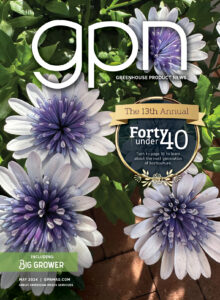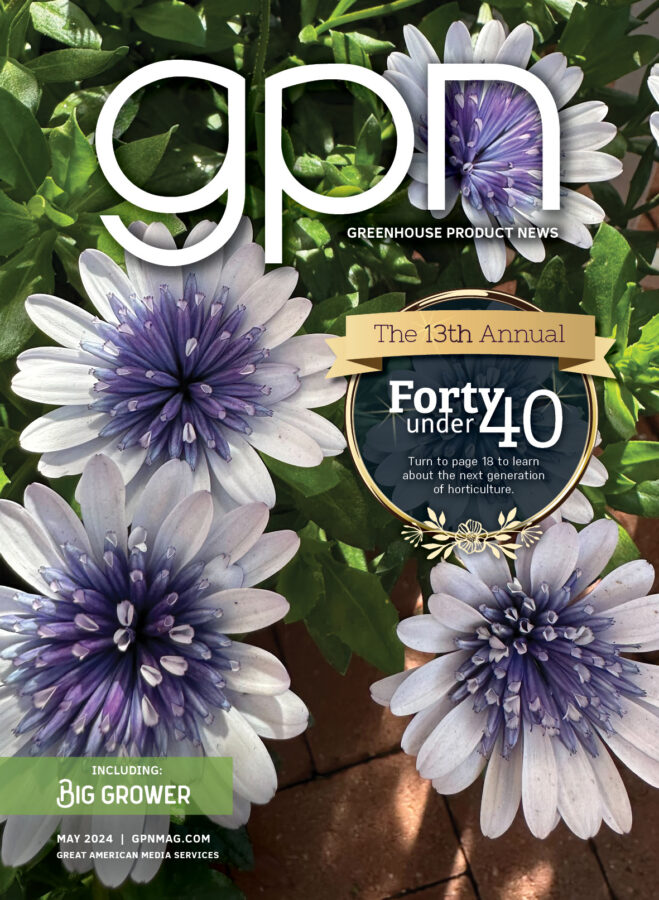Generation Z: The Last Shall Be First
If you’re still reeling from the changes in expectations, work habits, and priorities of millennials, you might need to sit down and prepare yourself for Generation Z. At 74 million strong and with roughly 17 million ready to enter the workforce, they are a group to be reckoned with. Also known as iGen, “post-millennials,” and the Homeland Generation, Gen Z is a generation ready to leave their mark.
Jason Dorsey, president of the Center for Generational Kinetics, which leads generational research concerning millennials and Gen Z, says, “Gen Z, the generation after millennials, will soon become the fastest growing generation of employees and customers. This new generation thinks email is snail mail and Facebook is what their grandparents like. Every parent, employer, marketer and neighbor needs to understand this new generation that is poised to change everything.”
The green industry is no exception. While data is limited concerning Gen Z specifically within the horticulture industry, employers can take note of key generational characteristics to help prepare for a generation that is expected to be a gamechanger.
AS A GENERATION
Generation Z encompasses those born roughly between 1995 and 2012, making the oldest 23 years old and the youngest only 6. For baby boomers, these are grandchildren, Gen X’s children, and millennials’ youngest siblings. Generation Z is the most racially diverse generation, with almost half of the generation being something other than non-Hispanic white.
Generation Z is also the first generation of true digital natives, essentially born with a smartphone in hand — or at least it seems that way. This means that being “online” is a constant state of being, and technology is used for everything — from texting mom when she’s just downstairs to doing homework, dating, shopping and exploring.
Being constantly online and connected has ramifications for the mental health of Generation Z. Dr. Jean Twenge, author of “iGen: Why Today’s Super-Connected Kids Are Growing Up Less Rebellious, More Tolerant, Less Happy—and Completely Unprepared for Adulthood,” shares, “iGen is the first generation to spend their entire adolescence with smartphones, and that has had ripple effects across many areas of their lives.”
Twenge notes from her research of generational trends that starting in 2010, iGens were less likely to go out without their parents, less likely to hang out with friends, and more often felt lonely and left out. This is reflected in a 50 percent increase in major depressive disorders in teens between 2011 and 2015, and as a whole, Gen Z reports high levels of anxiety and depression. Twenge correlates this with higher smartphone ownership and use.
Despite those grim statistics, Gen Z is widely characterized as being optimistic. In a survey done by Ernst & Young (EY)of 1,600 interns at the 21st annual International Intern Leadership Conference, nearly two-thirds felt that they would be better off financially and happier overall at work than their parents. Larry Nash, Ernst & Young LLP’s U.S. recruiting leader, reflected on the survey, “Our survey findings re-affirm what we already know — this generation is driven, passionate and open-minded. They also place a strong emphasis on flexibility and opportunities for growth.”
AS A WORKFORCE
Employers fed up with millennials can take hope. Dorsey explains that Gen Z — in contrast to millennials — expects to work harder and longer for success. “This is a rebuttal to a sense of entitlement that unfortunately has been attached to millennials,” he shares.
This sense of needing to work hard comes from having lived through the Great Recession of 2007-2009. Children during that time witnessed parents losing jobs, cut-back Christmases and a general insecurity. Witnessing their parents’ struggle has therefore made many of them more pragmatic when it comes to earning, spending and saving money. Many are leery of the student debt crisis plaguing millennials, causing many to opt for less expensive degrees, vocational training and work-study programs.
According to the University of California, Los Angeles, 82 percent of college freshman nationwide prioritize becoming well off. Gen Z is therefore more willing to work overtime and prioritize work than millennials, according to the Monitoring the Future survey from the University of Michigan. “They have a stronger work ethic,” notes Twenge. “They’re really scared that they’re not going to get the good job that everybody says they need to make it.”
The EY survey shares other key findings when it comes to Gen Z in the workplace: 50 percent cite flexibility as a key employer attribute, 66 percent say job satisfaction and financial stability are equally important, and 67 percent prefer a millennial manager as opposed to Gen X or baby boomer. A majority also believe that their ability to work well with a diverse group of people helps to set them apart from others.
AS THE FUTURE OF HORTICULTURE
For a generation that’s continuously plugged in, horticulture offers a way to unplug and engage with the material world. Smartphones can’t replicate greenhouses full of living, breathing plants, nor can they produce the kind of job satisfaction that comes from directly participating in plants’ growth. This doesn’t even begin to include the number of mental health benefits proven to correlate with being outside and working with plants.
Additionally, horticulture has always been an industry less keen on specific degrees as it is in a willingness to work hard and learn, which Gen Z offers plenty of. If employers can show easily accessible careers for those willing to work right out of high school or getting two-year degrees, they stand a strong chance in recruiting Gen Z employees eager to stay out of student debt.
Hannah Brown, a junior at North Carolina State University majoring in horticulture, shares, “Young people who fall into Gen Z have big dreams. We aren’t content to stay in one place or with one job with no growth opportunities. But these seemingly negative attributes can also be attributes of passion. This passion can make us hardworking, diligent, and motivated to expand beyond the norm. I would say some Gen Z employees, because of our access to media, internet, and education, have only learned to ‘think outside the box.’”
That ability to think outside the box along with a strong affinity for technology offers countless opportunities for greenhouse employers ready to embrace change and head into the future.
Generation Z employees eagerly seek ways that technology can help both in work and daily life. Brown agrees, “For employers, it may be important to allow Gen Z workers the space to dream up ideas, as much as possible, as I believe Gen Z employees will want to feel that they are making a difference or have a stake in the company.”
Anthony Soster, a senior at Michigan State University majoring in horticulture, adds, “I think that Gen Z, more than anything, thinks in a different way. We often have an outlook that is vastly different from older generations, and while we don’t know as much about the industry, we are excited about it in ways that are unheard of in
previous generations.”
Creating awareness is key for the green industry. Initiatives like Seed Your Future and Bloom seek to change that. For Carolyn Tuski, new botany teacher and school greenhouse manager at Notre Dame Preparatory School in Pontiac, Michigan, it’s also about providing some hands-on experience.
“For a lot of my students, landscaping and working with plants is something hired out. It wasn’t until taking botany at school and working in the school greenhouse that they began to realize that plants are something they can get comfortable with and integrate into their everyday lives. It’s exciting to see their excitement,” Tuski says.
In a survey of nearly 50 of Tuski’s students, the majority knew nothing about horticulture before taking the class. Since starting the class, that same majority has a newfound appreciation for the discipline. One student commented, “I am beginning to realize just how essential it is to life and to our survival. It is much more important than I once thought it to be.” Another added, “I have a newfound respect for the techniques needed to repeatedly plant plants and the various methods needed to achieve a bountiful harvest.”
Ninety percent of the students said that as a result of the class they are more likely to do more with plants outside of the class. However, 46 percent said they are unlikely to consider a career in the green industry. Twenty-six percent were open to careers in the green industry “if the right opportunity presented itself.”
The green industry’s task now is to do just that and to cultivate opportunities for Gen Z to apply their skills and talents for the benefit of their own professional development and the advancement of the green industry into the future. Embracing the youngest generation of workers could make all the difference in ushering in fresh success with the creativity, technology, innovation, excitement and diversity Gen Z has to offer.


 Video Library
Video Library 




















